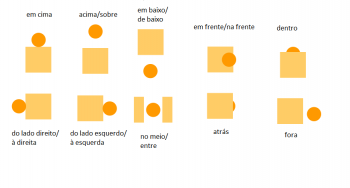Archive for 'Grammar'
Contractions Posted by carol on Feb 19, 2016
Olá a todos! Como foi a semana de vocês? (Hello, you guys! How was your week?) Today’s grammar point is about contractions. Contractions are combinations between two words that have been shortened (by omitting letters and sounds) to result in a single word. While some languages, like Spanish, use fewer contractions, they are very present…
Tudo e todo Posted by carol on Jan 7, 2016
Olá a todos! Tudo bem com vocês? (Hey all!! Everything alright with you?) The words tudo e todo in Portuguese are very similar, not only in spelling, but also in meaning. To avoid confusion, today’s post will make a distinction between the two pronouns and provide some examples: Tudo (everything) means the totality of things, the…
Augmentative e diminutive in Portuguese Posted by carol on Nov 12, 2015
Olá, galerinha. Tudo certinho? (Hey, you guys, everything all right?) You may have noticed while trying to learn Portuguese or chatting with Brazilians that we really enjoy using the augmentative and the diminutive forms. It’s very common and we use it on a regular basis, so it’s important to learn how it works. The augmentative…
Acentuação gráfica – accents em Português Posted by Ester on Nov 10, 2015
Acento agudo (acute accent): It is always used above any vowel to indicate this vowel is part of the stressed syllable. It also indicates that the vowel sound is an open sound. Exemplos: Ela é uma menina amável. (She is a lovely girl) Esse não é um assunto típico da aula de física. (This…
Preposition of place em Português Posted by Ester on Oct 12, 2015
Como vão vocês, amigos? Where is there a pen I can use? There are better ways of answering that question than pointing and saying “there”. Knowing the following prepositions of place will be of great help: Em cima de – on Em baixo de – under Acima de/sobre – over Entre – between Do lado…
Gênero (gender) em Português Posted by Ester on Aug 31, 2015
In Portuguese all the nomes e pronomes (nous and pronouns) have a gender. They are always either feminine or masculine. Even though it might be easy to tell which ones are feminine and which ones are masculine – since femininos usually end in “a” and masculinos in “o” – there are some exceptions which are…
Horas (time) in Portuguese Posted by Ester on Aug 10, 2015
Beleza, galera? What do you do when your phone is out of battery and you do not have a watch or a clock to check the time? It is easy: just ask someone on the streets. A good way of practicing it is to ask people on the streets what time it is even if…







